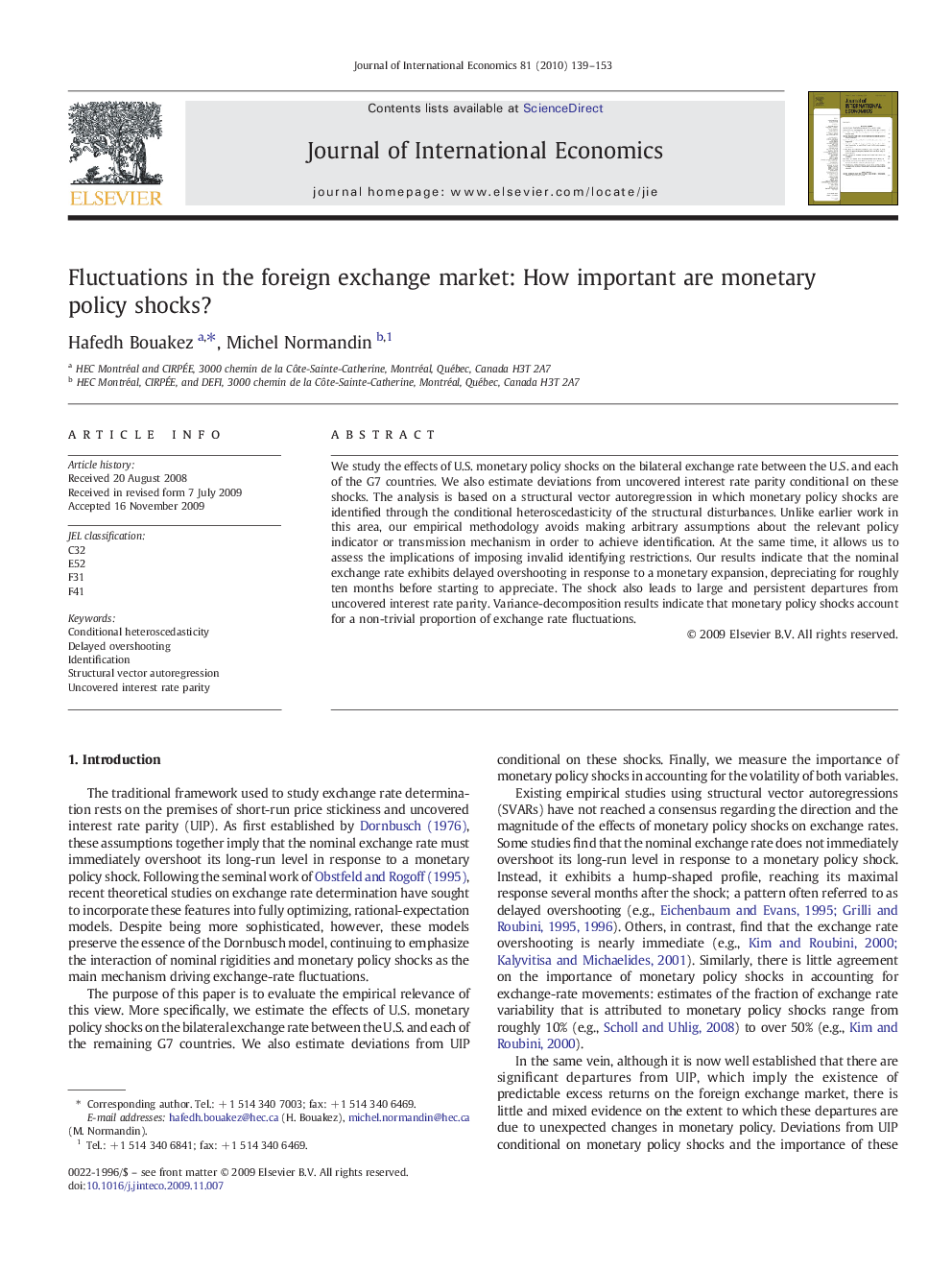| Article ID | Journal | Published Year | Pages | File Type |
|---|---|---|---|---|
| 962730 | Journal of International Economics | 2010 | 15 Pages |
Abstract
We study the effects of U.S. monetary policy shocks on the bilateral exchange rate between the U.S. and each of the G7 countries. We also estimate deviations from uncovered interest rate parity conditional on these shocks. The analysis is based on a structural vector autoregression in which monetary policy shocks are identified through the conditional heteroscedasticity of the structural disturbances. Unlike earlier work in this area, our empirical methodology avoids making arbitrary assumptions about the relevant policy indicator or transmission mechanism in order to achieve identification. At the same time, it allows us to assess the implications of imposing invalid identifying restrictions. Our results indicate that the nominal exchange rate exhibits delayed overshooting in response to a monetary expansion, depreciating for roughly ten months before starting to appreciate. The shock also leads to large and persistent departures from uncovered interest rate parity. Variance-decomposition results indicate that monetary policy shocks account for a non-trivial proportion of exchange rate fluctuations.
Keywords
Related Topics
Social Sciences and Humanities
Economics, Econometrics and Finance
Economics and Econometrics
Authors
Hafedh Bouakez, Michel Normandin,
